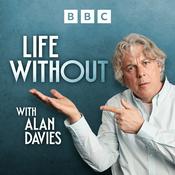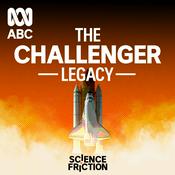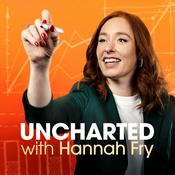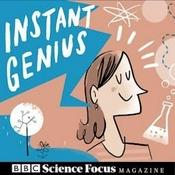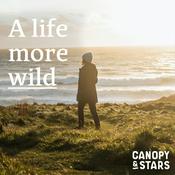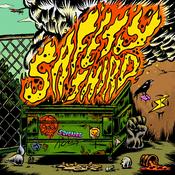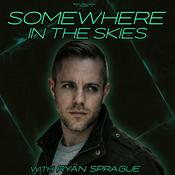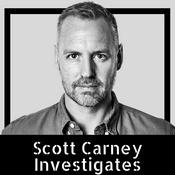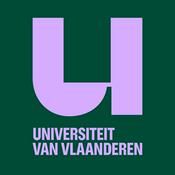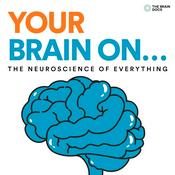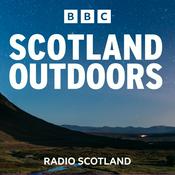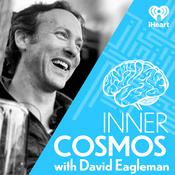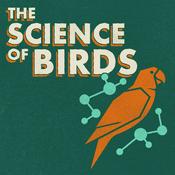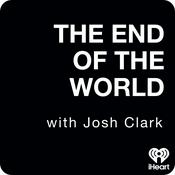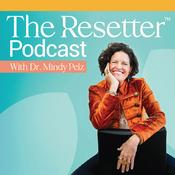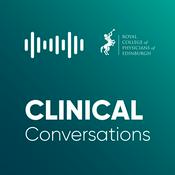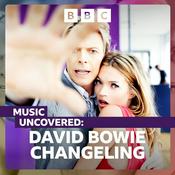284 episodes
- First broadcast in 2024. Graihagh Jackson finds out about the little know pollutant making us sick and driving the climate crisis.
It commonly comes from burning coal, diesel or wood and has a habit of getting stuck in people’s lungs as well as causing glaciers to melt.
In Nepal, home to some of the world’s most beautiful glaciers, we meet journalist Tulsi Rauniyar, who tells us all about the impact black carbon is having on women and children. She meets Tenzing Chogyal Sherpa, a glacier expert who maps the ice losses in the Himalayas.
Zerin Osho from the Institute for Governance & Sustainable Development helps us understand why black carbon is so important - but often forgotten - in the fight against climate change, and how we can change that.
Got a question you’d like answered? Email: [email protected]
Presenter: Graihagh Jackson
Producer: Ben Cooper
Researcher: Octavia Woodward
Production Coordinator: Brenda Brown
Editor: Simon Watts
Sound Designer: Tom Brignell
PHOTO CREDIT: SAIF DAHLAH/AFP via Getty Images - Winter sport depends on one thing that is becoming less reliable each year: snow. As temperatures rise, glaciers are retreating, seasons are shifting, and lower-elevation resorts are struggling to guarantee consistent conditions.
Hosts Graihagh Jackson and Jordan Dunbar explore the ways climate change is reshaping winter sport, from elite competition to local economies. Former alpine ski racer and BBC Ski Sunday presenter Chemmy Alcott describes how competitors have to deal with shorter training seasons, cancelled races and increasing injury risks.
They also speak to Daniel Scott, a leading researcher on climate change and winter tourism at the University of Waterloo in Canada, about which cities may still be able to host the Winter Olympics and Paralympics by the 2050s. And Professor Scott tells The Climate Question how organisers are adapting through snowmaking, snow storage and changes to competition schedules.
Guests:
Chemmy Alcott – former British Winter Olympian and BBC Ski Sunday presenter
Professor Daniel Scott – University of Waterloo, Canada
If you have a question for the team, email: [email protected] or WhatsApp: +44 8000 321 721
Presenters: Jordan Dunbar and Graihagh Jackson
Production team: Grace Braddock, Diane Richardson, Nik Sindle
Sound engineers: Tom Brignell and Philip Bull
Editor: Simon Watts
Image: Reuters - Fear, anxiety, sadness, anger, dread and powerlessness are some of the many emotions associated with what’s called climate anxiety.
A global survey of 10,000 young people aged between 16–25 years, found that 60% were very worried about climate change, and nearly half said that their anxiety negatively effects their daily life.
Psychologists say these are rational responses to our changing climate, experienced in many different ways around the world.
Graihagh Jackson asks how people can manage these difficult emotions and whether climate anxiety itself can be motivational.
Graihagh chats to:
Svetlana Chigozie Onye who leads the Eco-anxiety in Africa Project, which looks at the mental health impact of climate change and solutions across Africa.
Dr Daniella Watson, Chartered Health Psychologist and a Research Associate at the The Climate Cares Centre, Imperial College London.
Got a question you’d like us to answer? Send an email to: [email protected] or whatsapp us on +44 8000 321 721
Presenter: Graihagh Jackson
Production Team: Diane Richardson, Nik Sindle, Maria Ogundele
Sound Engineers: Jonny Hall and Tom Brignell
Editor: Simon Watts
Image Credit: Dried up dam. Mike Hutchings, Reuters. - We know the planet is getting hotter because of human-induced climate change. But just how hot could it get?
In this show, Graihagh Jackson and Jordan Dunbar chat to Nasa scientist, Kate Marvel, about the world of climate modelling. Kate has spent decades trying to work out what will happen to the Earth as emissions of carbon dioxide increase.
Although the basic facts of climate change are settled, climate modellers are trying to understand how photosynthesis by plants will change in a warmer world. And they’re also puzzling over the crucial role played by clouds!
Recently, Kate has written Human Nature, a book about how climate change affects our emotions - from grief and anger to hope and love. She says the wide range of feelings prompted by global warming are compatible with getting the science right.
Presenter: Graihagh Jackson and Jordan Dunbar
Production Team: Nik Sindle, Diane Richardson, Brenda Brown
Sound engineer: Phil Bull and Tom Brignell
Editor: Simon Watts
If you have a question for the team, email: [email protected] or WhatsApp: +44 8000 321 721
(Image: Wildfires in California. Credit: Reuters) - How farmers and scientists in eastern India are using ancient rice seeds to fight the growing impact of flooding, soil salinity and drought.
The BBC’s William Kremer tells Graihagh Jackson about his visit to the Sundarbans in West Bengal, where cyclones and rising sea levels have devastated crops. William meets the rice growers drawing on the skills of their forefathers to feed their families. Graihagh also gets a global overview from Dr Rafal Gutaker, rice expert at Kew Gardens, London. This programme was first broadcast in 2025.
Reporter in India: William Kremer
Production Team: Diane Richardson, Graihagh Jackson, Octavia Woodward
Sound Mix: Neil Churchill and Tom Brignell
Editor: Simon Watts
If you have a question for the team, email: [email protected] or WhatsApp: +44 8000 321 721
Image credit: Reuters
More Science podcasts
Trending Science podcasts
About The Climate Question
Why we find it so hard to save our own planet, and how we might change that.
Podcast websiteListen to The Climate Question, Curious Cases and many other podcasts from around the world with the radio.net app
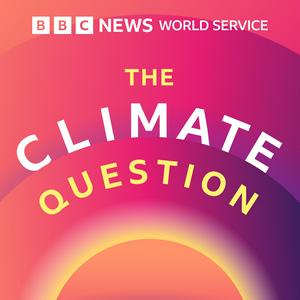
Get the free radio.net app
- Stations and podcasts to bookmark
- Stream via Wi-Fi or Bluetooth
- Supports Carplay & Android Auto
- Many other app features
Get the free radio.net app
- Stations and podcasts to bookmark
- Stream via Wi-Fi or Bluetooth
- Supports Carplay & Android Auto
- Many other app features


The Climate Question
Scan code,
download the app,
start listening.
download the app,
start listening.



